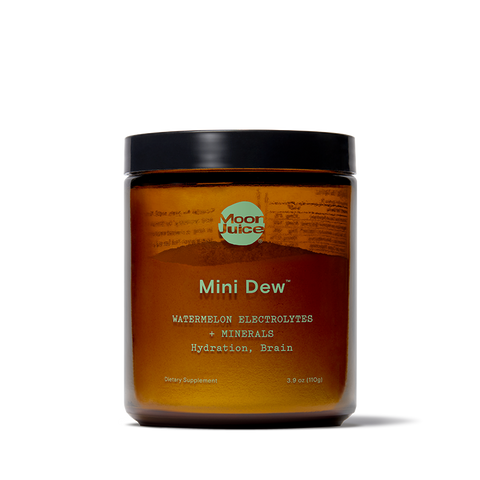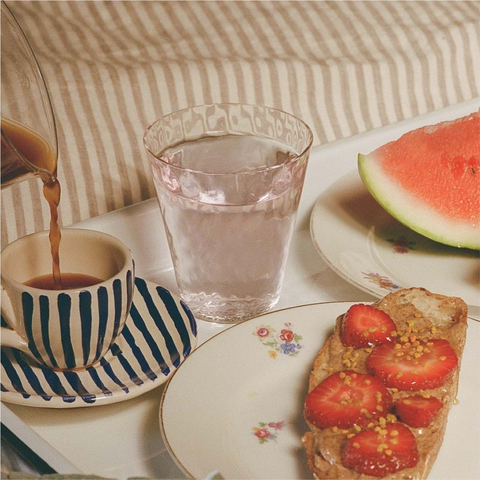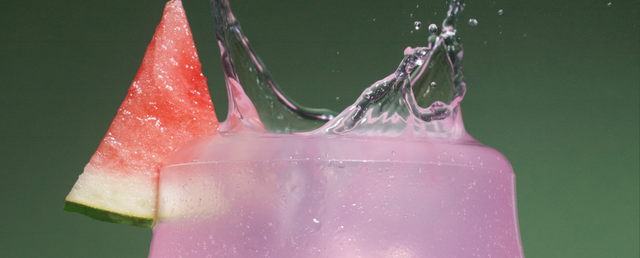Your body doesn’t run solely on protein, fats, and carbohydrates. You need other nutrients like vitamins and minerals to support your overall well-being. Whether we’re talking about the benefits of electrolytes or trace minerals like Calcium, Phosphorus, Magnesium, Potassium, and Sodium, all of these elements are essential for optimal wellness.
Minerals are naturally occurring substances that your body can’t produce on its own. So, what is the best way to fuel your body with the minerals it needs to survive and thrive? Through mineral-rich food sources, like vegetables, fruits, nuts, and seeds.
Let’s dig into some of the most mineral-rich foods you can add to your diet that are packed with essential nutrients.
1. Almonds
First up in foods high in minerals: almonds. These nutrient-filled nuts are a popular, satisfying snack and contain a host of essential minerals like:
- Calcium
- Copper
- Iron
- Magnesium
- Manganese
- Potassium
- Phosphorous
A single 100-gram (g) serving of almonds provides up to 21% of the recommended daily value of Calcium. Calcium is crucial for maintaining healthy bone density.
A handful of almonds is also chock full of Manganese, a trace mineral important for supporting strong bones — 100 grams provides up to 95% of the recommended daily value.
2. Pumpkin seeds
Pumpkin seeds are the top choice when it comes to foods with minerals. These tasty seeds are a good source of Iron, Magnesium, Copper, Phosphorus, Potassium, Selenium, and Zinc.
Just 100 grams of pumpkin seeds will give you about 94% of the daily recommendation for Phosphorous and 69% of the DV for Zinc.
Your body needs Phosphorus to help eliminate waste and repair damaged tissues. While Zinc helps support immune health. According to a 2022 review of 43 studies, there’s even evidence that Zinc supplementation may improve mood.
3. Sesame seeds
Small but mighty, sesame seeds are another powerhouse food source for minerals like Calcium, Iron, Magnesium, Manganese, Phosphorus, Sodium, and Zinc.
Sprinkle them atop your next salad to replenish your Manganese stores — 100 grams will provide you with more than the recommended daily value.
Eating foods rich in Manganese with amino acid-rich foods like whole grains, nuts, seeds, fish, quinoa, and legumes helps your body better metabolize protein.
4. Chia seeds
These teeny tiny seeds don’t just add a nice crunchy texture on top of yogurt bowls and smoothies, but they also pack a mighty punch nutrient-wise. 100 grams of chia seeds contains the entire daily recommended amount of Copper, Manganese, and Selenium.
Selenium is important for regulating your thyroid hormones and preventing oxidative damage due to factors like stress.
5. Mulberries
Data suggests that Iron deficiency is the most common nutrient deficiency, affecting about 30% of people around the world. Iron is crucial for growth and hormone production. A lack of it can show up as fatigue, headache, and weakness.
These sweet, edible berries that look very similar to blackberries make a great oatmeal topping and are a good source of Iron.
6. Cacao
Add cacao powder to your next smoothie to get a solid dose of Iron, Magnesium, Phosphorous, and Zinc.
Cacao is different from processed cocoa powder in that it has a slightly bitter but richer flavor. It’s also more nutritious, containing about 500 milligrams (mg) of Magnesium per 100 g — more than 100% of the DV.
Magnesium is an essential mineral for nerve and muscle function. In the brain, Magnesium is responsible for supporting nerve signal transmission. One recent questionnaire-based study found a link between higher Magnesium intake and larger brain volume, suggesting not only that the mineral plays a role in cognitive health but that it has neuroprotective effects, too.
7. Bananas
You probably already know that bananas are full of Potassium, but did you know they’re also a good source of Manganese?
Balanced Potassium levels are critical for regulating blood pressure and Manganese plays a role in cholesterol and glucose metabolism.
8. Figs
These rich-tasting fruits pair well with nuts and seeds, and are great sources of essential vitamins. Plus, figs also contain 8% of the daily recommended amount for the trace mineral Copper.
Copper is essential for maintaining connective tissue, immune system, and blood vessel health.
A 2022 analysis of the 2011-2018 National Health and Nutrition Examination Survey (NHANES) results noted a link between adequate Copper intake and a lower risk of heart attack in high-risk people like older women and those with high blood pressure.
9. Avocado
According to a 2018 review, evidence suggests that a diet high in Potassium can help decrease the risk of heart disease and stroke.
Avocados are a good source of healthy fats, Copper, and Potassium. A single 100-gram serving will net you 21% of the daily recommended intake for Copper and 10% DV for Potassium.
10. Spinach
When it comes to nutrition, green is good. The greener, the better. Dark leafy greens like spinach are packed with nutrients like antioxidants and, yes, minerals, including Iron, Copper, Manganese, Magnesium, and Potassium.
Forget an apple a day. A bunch of spinach a day may help you avoid viral illnesses thanks to the immune-supporting effects of minerals like Copper. Try adding this immune-balancing food and other green cruciferous vegetables to boost your diet with a variety of essential nutrients.

11. Kale
Dare we say kale is leafy green royalty? If you choose kale as your salad green, you get a dose of Calcium in addition to essential vitamins — 20% of the daily recommended amount. If you’re not a fan of kale, you can add other leafy greens or green vegetables to your plate to reap similar benefits.
12. Seaweed
We like to think of seaweed as the leafy green of the sea. It’s one of the only plant-based sources of Vitamin B12, and it contains high amounts of Manganese — a mineral that, like Calcium, helps with bone formation and supports strong bones.
You’ll also get some Zinc and Iron from eating seaweed salad or chips.
13. Sweet potatoes
Sweet potatoes are a great addition to a colorful plate of food. Their orange color signals the presence of beta-carotene (aka Vitamin A), but these brightly colored tubers also contain Copper, Magnesium, and Manganese.
14. Broccoli
Aside from the obvious vitamin content, broccoli is a decent source of Copper, providing around 10% of the daily recommended value per 100 grams.
15. Quinoa
This nutrient superhero grain contains all nine amino acids and is a great source of several minerals, including:
- Manganese
- Copper
- Magnesium
- Phosphorous
- Zinc
- Iron
- Potassium
- Selenium
16. Lentils
Thanks to their satisfying, meaty texture, protein-packed lentils are an excellent meat alternative in plant-based meals.
You’ll get more than protein when adding lentils to soups and stews, though. These legumes are also high in Copper, Manganese, Iron, and Zinc.
17. Citrus fruit
There’s a reason many electrolyte drinks have a citrusy zing. Citrus fruits like lemons, grapefruit, oranges, and lime contain minerals like Calcium, Potassium, Magnesium, and Copper. Citrus fruits are high-mineral foods, serving as good sources of trace minerals and essential nutrients.
18. Brazil nuts
Add Brazil nuts to your next trail mix blend to help top up your mineral stores on your next hike. One 100-gram serving of the jumbo-sized nuts contains almost 100% of the daily recommended amount of Magnesium and more than half the DV for Phosphorous.
Takeaway
Filling your plate, bowl, or smoothie cup with these mineral-rich foods is one way to support your health from the inside out.
But food sources for minerals aren’t always adequate in preventing a mineral deficiency. Today’s agricultural landscape relies on monocropping and commercial fertilizers, leading to nutrient-deficient crops. That means healthy eating alone might not be able to provide you with all the essential nutrients you need on a daily basis.
Plus, even the most meticulous folks can’t always achieve a perfect daily diet. And your nutrient needs can fluctuate from day to day — factors like intense workouts and pregnancy might make your body crave more minerals than usual.
Supplementation with mineral-rich electrolyte powders or drinks can help you fill in nutrient gaps. Not only can electrolyte drinks rehydrate you, but they can also provide your body with essential minerals to keep your body running in tip-top shape.
You can also replenish your mineral stores with Mini Dew™. Our 2 in 1: electrolyte + mineral powder comes in two flavors (watermelon and pomelo) and is formulated with:
- A microplastic-free pink salt to support water balance around cells.
- Ionic trace minerals to give the body the elements it needs to stay energized.
- Chelated essential minerals to help with cognitive performance and limit brain fog.
The easy-to-use electrolyte powder instantly dissolves in water and provides a dose of minerals when you need it — after a workout, a sweaty yoga session, or while you travel. Whether you choose to add minerals to water first thing in the morning or in the afternoon for a little pick-me-up, this powder supplement makes it easy for you to prioritize your health no matter how busy your life gets. Try adding Mini Dew into your daily routine to boost your mineral intake and support your overall wellness.
Sources
- Alateeq K, et al. (2023). Dietary magnesium intake is related to larger brain volumes and lower white matter lesions wih notable sex differences. https://link.springer.com/article/10.1007/s00394-023-03123-x
- Copper. (2022). https://ods.od.nih.gov/factsheets/Copper-Consumer/
- Hejazi J, et al. (2020). Nutrition and osteoporosis prevention and treatment. https://home.biomedpress.org/index.php/BMRAT/article/view/598
- Kumar A, et al. (2022). Iron deficiency anemia: Pathophysiology, assessment, practical management. https://www.ncbi.nlm.nih.gov/pmc/articles/PMC8744124/
- Li J, et al. (2022). Zinc intakes and health outcomes: An umbrella review. https://www.frontiersin.org/articles/10.3389/fnut.2022.798078/full
- Magnesium. (2022). https://ods.od.nih.gov/factsheets/Magnesium-HealthProfessional/
- Maier JAM, et al. (2023). Magnesium and the brain: A focus on neuroinflammation and neurodegeneration. https://www.ncbi.nlm.nih.gov/pmc/articles/PMC9820677/
- Manganese. (2021). https://ods.od.nih.gov/factsheets/Manganese-HealthProfessional/
- Mount DB, et al. (2023). Potassium and hypertension. https://www.uptodate.com/contents/potassium-and-hypertension
- Phosphorous. (2023). https://ods.od.nih.gov/factsheets/Phosphorus-HealthProfessional/
- Rosen HN, et al. (2023). Patient education: Calcium and vitamin D for bone health (beyond the basics). https://www.uptodate.com/contents/calcium-and-vitamin-d-for-bone-health-beyond-the-basics
- Selenium. (2021). https://ods.od.nih.gov/factsheets/Selenium-HealthProfessional/
- Wang F, et al. (2023). Selenium and thyroid diseases. https://www.ncbi.nlm.nih.gov/pmc/articles/PMC10080082/#
- Wen H, et al. (2022). Dietary copper intake and risk of myocardial infarction in US adults: A propensity score-matched analysis. https://www.frontiersin.org/articles/10.3389/fcvm.2022.942000/full
- Xu Lianbin, et al. (2023). Effects of magnesium supplementation on improving hyperglycemia, hypercholesterolemia, and hypertension in type 2 diabetes: A pooled analysis of 24 randomized controlled trials. https://www.frontiersin.org/articles/10.3389/fnut.2022.1020327/full














